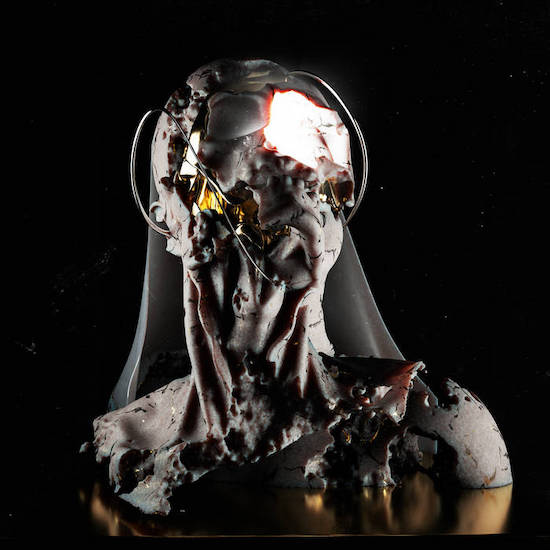A name like Lana Del Rabies, which latches parasitically onto the identity of another more famous act, might well be a subconscious device to deflect attention away from the artist. It has certainly worked for me in the past, with Wevie Stonder, Com Truise and a number of other similar spoonerists almost entirely passing me by as I continue to suffer an ongoing sense of humour failure. Behind the Lana Del Rabies facade is the Arizona noise musician Sam An, who constructed her dark aesthetic from a morbid love of Coil, Nine Inch Nails and Pharmakon, as well as from a stint living in Detroit, where she sucked up the electronic signals from the sonic ley lines of the Motor City.
The imposter LDR – who one assumes is beholden more to her near namesake as postmodernist avatar than musician – has somewhat infuriatingly transcended the moniker by making music that is more intriguing with each release. The monster she’s created is constructively destructive, barking catharsis from the echoey dungeon, though out of the melee of noise and pain arise surprising caches of mellifluousness. Strega Beata, Latin for ‘blessed witch’, attempts to make sense of, or at least process, grief in all its various stages, both personally and in the context of the pre-apocalyptic world we’re apparently navigating. Such is the barrage An has encountered in recent years, that there’s even a track called ‘Apocalypse Fatigue’, which suitably lags and is, well, apocalyptic.
At the centre of the album, we get to the core of that suffering on a triumvirate of extraordinary tracks that feed into each other. ‘Mother’ is like a commodious mine of blackness where nuggets of beauty can be found, at least until a locomotive of spitting noise and fury chugs through the middle of it. Then, all is calm again, with fragments of piano, hinting at the way grief often works, coming in waves and dissipating, with eruptions of anger and then the sudden obnoxious thud where it almost knocks you over.
On the following track, ‘Grace The Teacher’, she straddles the line between dark tension and beauty, bringing both to bear throughout. And then comes ‘Mourning’, a nine-minute opus that builds ominously and remains entirely compelling from start to finish. Composed of drones and white noise, there’s a devastating pop tune hiding under its loose, etiolated skin.
There are moments that could almost be described as providing levity, though relatively so. ‘A Plague’ clatters intransigently into the bowels of hell as Sam An sings almost sanguinely about her plight, and ‘Hallowed Is The Earth’ shuffles along on a dance loop, again submerged beneath the digital noise. Strega Beata is bleakly alluring, and while it’s not for everyone, those who it is for will love it all the more for that fact. Like the artist’s name, it’s no barrel of laughs.


